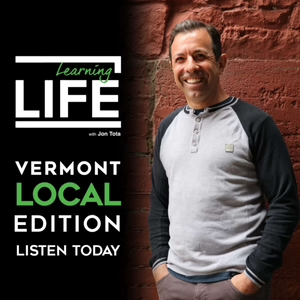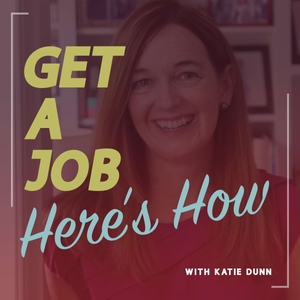
Ep212: Everybody Knows Somebody with an Episodic Disability, with Melissa Egan
10/05/21 • 41 min
You may be aware of ways to accommodate physical and mental disabilities. But what about episodic disabilities?
If you don’t know what an episodic disability is, you’re not alone. Once you hear Melissa Egan describe it, you’ll probably realize that you, or someone you know, has one.
Melissa is the National Lead of Episodic Disabilities at Realize, a Canadian charity that fosters positive change for people living with HIV and other episodic disabilities. She helps companies create work environments that are accessible and inclusive.
Please join us in Changing Lenses to see through the eyes of people with episodic disabilities, and how we can support and accommodate their needs.
In this episode, you’ll learn:
- Practical ways to make your workplace inclusive and accessible for people with diverse abilities while centering the person.
- The difference between medical and social models of disability, and why one is more inclusive than the other.
- Why insurance disability plans are inadequate to accommodate employees with episodic disabilities.
- How employers can build a culture of accommodation (that doesn’t cost a ton of money).
- How employees can talk to their employer about accommodating their episodic disability.
Contact Rosie and find JEDI resources at: https://www.changinglenses.ca/
Full transcript available here.
Guest Bio and References/Links
About Melissa Egan:
Melissa is the National Lead, Episodic Disabilities at Realize. She has worked in the field of health and HIV for over 15 years as an educator and facilitator, developing and delivering trainings to diverse audiences across Canada. Melissa brings a commitment to inclusion, diversity, equity, and accessibility to her work, and she has worked extensively with marginalized, LGBTQ, and Indigenous people. Melissa holds a BA and BEd from Simon Fraser University in BC and is currently pursuing an MEd at OISE - University of Toronto.
Find Melissa and other resources on Realize’s website: https://www.realizecanada.org/en/
References and resources in this episode:
https://www.realizecanada.org/en/our-work/episodic-disabilities/
http://www.episodicdisabilities.ca/
https://supportedemployment.ca/
https://www.canada.ca/en/employment-social-development/campaigns/hiring-persons-disabilities.html
You may be aware of ways to accommodate physical and mental disabilities. But what about episodic disabilities?
If you don’t know what an episodic disability is, you’re not alone. Once you hear Melissa Egan describe it, you’ll probably realize that you, or someone you know, has one.
Melissa is the National Lead of Episodic Disabilities at Realize, a Canadian charity that fosters positive change for people living with HIV and other episodic disabilities. She helps companies create work environments that are accessible and inclusive.
Please join us in Changing Lenses to see through the eyes of people with episodic disabilities, and how we can support and accommodate their needs.
In this episode, you’ll learn:
- Practical ways to make your workplace inclusive and accessible for people with diverse abilities while centering the person.
- The difference between medical and social models of disability, and why one is more inclusive than the other.
- Why insurance disability plans are inadequate to accommodate employees with episodic disabilities.
- How employers can build a culture of accommodation (that doesn’t cost a ton of money).
- How employees can talk to their employer about accommodating their episodic disability.
Contact Rosie and find JEDI resources at: https://www.changinglenses.ca/
Full transcript available here.
Guest Bio and References/Links
About Melissa Egan:
Melissa is the National Lead, Episodic Disabilities at Realize. She has worked in the field of health and HIV for over 15 years as an educator and facilitator, developing and delivering trainings to diverse audiences across Canada. Melissa brings a commitment to inclusion, diversity, equity, and accessibility to her work, and she has worked extensively with marginalized, LGBTQ, and Indigenous people. Melissa holds a BA and BEd from Simon Fraser University in BC and is currently pursuing an MEd at OISE - University of Toronto.
Find Melissa and other resources on Realize’s website: https://www.realizecanada.org/en/
References and resources in this episode:
https://www.realizecanada.org/en/our-work/episodic-disabilities/
http://www.episodicdisabilities.ca/
https://supportedemployment.ca/
https://www.canada.ca/en/employment-social-development/campaigns/hiring-persons-disabilities.html
Previous Episode

Ep211: Combatting Poverty with Neuroscience, not Financial Literacy, with Emily Heath
If we see poverty as the result of financial illiteracy, irresponsibility or a lack of self-control, then the blame falls on the person living in poverty, and the answer is to find a job, spend less, and get financial training.
Financial literacy education is definitely important, and these programs have their benefits. But knowledge alone does not develop capability and behaviour change, any more than knowing you should exercise leads to going to the gym.
So why do the majority of financial interventions fail? To understand that, we’re Changing Lenses to see through the eyes of people experiencing financial vulnerability. Dr. Emily Heath, a senior researcher and behavioural neuroscientist, explains the cognitive biases and psychology behind financial decision-making. As we learn about the barriers to healthy financial behaviour, we also learn how racism, discrimination and other forms of oppression exacerbate the problem.
In this episode, you’ll learn:
- The cognitive biases that derail our best intentions for saving money
- Why low-income kids do worse in the “marshmallow test”
- How poverty is a tax on decision-making
- The effect of traumatic events like racism and domestic violence on financial capability
- What neuroscience tells us will actually help people facing financial vulnerability
[Please pardon the poor audio quality due to internet recording.]
Full transcript available here.
Contact Rosie and find JEDI resources at: https://www.changinglenses.ca/
ABOUT DR. EMILY HEATH
Dr. Emily Heath is a senior researcher, consultant and behaviour change specialist with a PhD in behavioural neuroscience from the University of Sydney’s Brain and Mind Centre. Emily has been the architect of award-winning financial capability programs, which she has developed for both youth and adults. She is the author of the international report, “How do we really build financial capability? 10 Principles for financial interventions”.
Emily is currently a Senior Manager, Climate Change and Sustainability Services with EY Australia, and sits on the Australian Securities and Investment Commission (ASIC) Schools and Money Working Group.
You can find Emily on LinkedIn.
References and resources in this episode:
Article on Professor Sendhil Mullainathan’s research: https://www.harvardmagazine.com/2015/05/the-science-of-scarcity
https://www.theatlantic.com/family/archive/2018/06/marshmallow-test/561779/
https://www.financialcapability.gov.au/files/how-to-really-build-financial-capability.pdf
Next Episode

Bonus Ep213: Talking Allyship and Solidarity on the Know Nonsense Anti-Racism Podcast
Anti-Racism. Black Lives Matter. Allyship and Solidarity between equity-seeking groups.
We’ve touched a bit on these with Changing Lenses podcast guests over the last year, but haven’t dived as deeply into these topics as my friend and fellow podcaster Nura Yunus has. She created the Know Nonsense Podcast to educate listeners about the experiences and systems of racism that exist in Canada and across the world, and the ways in which they show up for people of colour every single day.
Nura is a Black Muslim woman, born and raised in Canada to parents who immigrated from Eritrea. The Know Nonsense Podcast is Nura’s passion project which she does on 100% volunteer basis, while she’s working full time in international development.
So today, I’m excited to share (with Nura’s permission) a slightly shorter version of our episode called “Talking Allyship and Solidarity”, which originally aired on the Know Nonsense podcast on October 29, 2021.
In this episode, you’ll learn about:
- Identity in relatedness, not accomplishments
- The self-sacrifices required in allyship
- Examples of solidarity (and division) in DEI and workplaces today
- Racism within our own families
- Power brokers vs. allies (credit: Mary-Frances Winters)
- White supremacy culture, vs. white culture supremacy
Contact Rosie and find JEDI resources at: https://www.changinglenses.ca/
Full transcript available here.
Guest Bio and References/Links
About Nura Yunus:
Nura Yunus (she/her) is a Black Muslim woman born and raised in Toronto, the traditional territory of many nations including the Mississaugas of the Credit, the Anishnabeg, the Chippewa, the Haudenosaunee and the Wendat peoples and is now home to many diverse First Nations, Inuit and Métis peoples. Nura currently works in international development and before this worked with various grassroots and non-profit organizations in program design and delivery, community development and workshop facilitation. Her passion for anti-Black racism has recently led to the creation of the Know Nonsense Anti-Racism podcast, a resource for learning about racial injustice from a Canadian perspective. When she isn’t working on the podcast you can find her reading works by authors of colour, watching documentaries, or hiking one of Toronto’s many beautiful parks.
Follow the Know Nonsense Podcast on:
LinkTree
Instagram
Email - [email protected]
References and resources in this episode:
Original Know Nonsense episode release: on Spotify.
- Where Do I Begin? Reading Plan
- Rachel Cargle – The Great Unlearn
- Guide to Allyship
- Tema Okun – White Supremacy Culture
Changing Lenses: Diversify Your Perspectives - Ep212: Everybody Knows Somebody with an Episodic Disability, with Melissa Egan
Transcript
Please note: the transcripts attempt to stay true to the essence of each conversation, while maintaining clarity and readability. As a result, certain "filler" words, and nuances of tone, emotion and emphasis will be missing.
If you're able, you're strongly encouraged to listen to the audio podcast. Transcripts are generated using a combination of speech recognition software and human editors, and may contain errors.
Ep22: Everybody Knows Somebody with an Episodic Disabilit
If you like this episode you’ll love
Episode Comments
Generate a badge
Get a badge for your website that links back to this episode
<a href="https://goodpods.com/podcasts/changing-lenses-diversify-your-perspectives-189593/ep212-everybody-knows-somebody-with-an-episodic-disability-with-meliss-17473040"> <img src="https://storage.googleapis.com/goodpods-images-bucket/badges/generic-badge-1.svg" alt="listen to ep212: everybody knows somebody with an episodic disability, with melissa egan on goodpods" style="width: 225px" /> </a>
Copy




